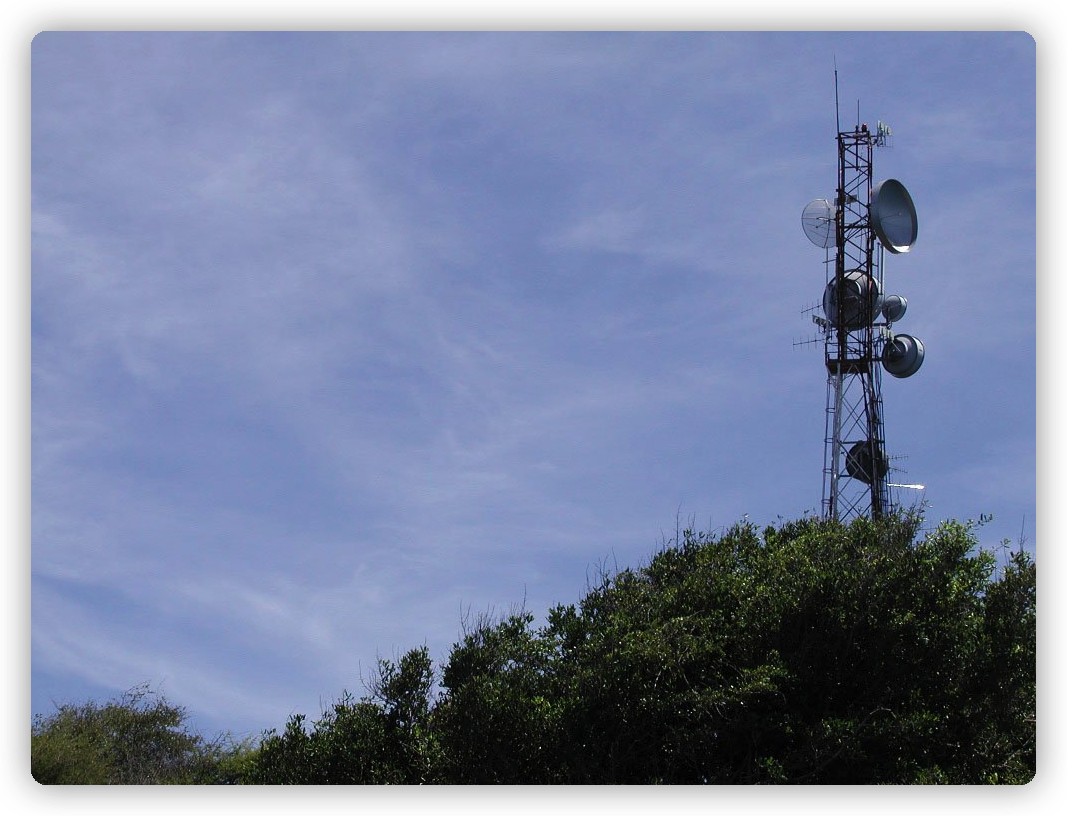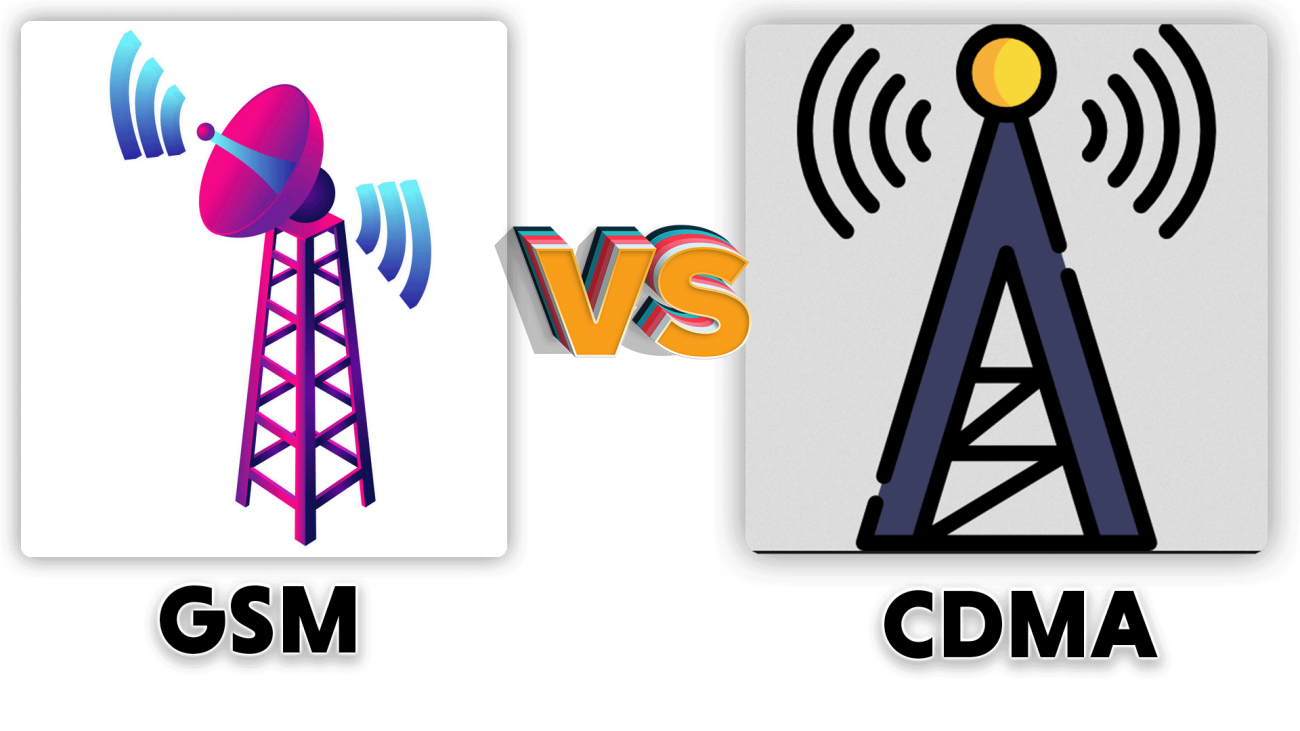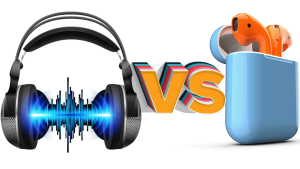CDMA and GSM are both two of the most common types of mobile technologies used in modern day cell phones. In this post, we’ll go over the history of each, explain the differences between CDMA vs. GSM, and look at some popular carriers who use these standards today.
In this article, you will learn:
What is CDMA?
CDMA is a radio signal technology that allows for several simultaneous calls to be made on a single channel by using different codes to separate out each call. This makes more efficient use of spectrum and reduces interference between calls.
Qualcomm was the first to develop a code division multiple access (CDMA) system for wireless communication networks. It is a spread-spectrum technology in which the user’s voice data is being transmitted over a frequency range of 6.78 MHz, using the same radio frequency channel that other cell phone users can use in the area.. It has since been used as the basis for the CDMA2000 and WCDMA standards for 3G.
The advantage of this approach is that it achieves greater spectral efficiency than other technologies, such as TDMA, GSM, and Wi-Fi. In North America, CDMA has been used by companies such as Verizon, Sprint, and Boost Mobile. It is currently being used in the U.S., China, Japan, Taiwan, Hong Kong (through a roaming agreement called the Cross-Strait Services Agreement), Mexico and some Caribbean countries (e.g., Antigua & Barbuda). like TDMA or FDMA. The disadvantage is that as more users are added to the system, interference between them increases exponentially.
What is GSM?

The GSM Association is an international organization founded in 1987 with the goal of developing and overseeing the expansion of the GSM wireless standard. The GSM stands for Global System for Mobile Communication and was considered the standard for communication globally, particularly in Asia and Europe, with its availability in over 210 countries worldwide. It functions in four distinct frequency bands, 900 MHz and 1800 MHz in Europe and Asia, and 850 MHz and 1900 MHz in North and South America.
While the GSM Association is mostly known for its role in GSM, it also manages the development of other wireless standards like LTE, UMTS and DMB. For example, the GSM Association was responsible for coordinating the development of a global standard for third generation (3G) personal communication services (PCS), which would be called UMTS. Since then, they have managed the evolution of UMTS to become what is now high-speed packet access (HSPA) and HSPA+. In addition to their work on 3G standards worldwide, they have also extended their influence on the development of 4G Lte standards.
Key Differences Between CDMA vs. GSM
CDMA vs. GSM technology is a common comparison for cell phone users, and it’s one that anyone who owns a cell phone should understand.
The most significant is that they are incompatible. It means that a CDMA phone can’t connect to a GSM network, and vice versa. You’d have to buy a new phone if you wanted to switch from one type of network to the other.
While CDMA technology is used by Verizon and Sprint in the United States. Over 90% of the world used GSM and is the main standard used in North America, Europe and Asia.
Coverage Area: CDMA network work better in areas with high radio frequency interference. In other words, major cities where there are more radio stations and electronic devices that interfere with a phone signal. GSM phones work better in rural areas where there is less radio frequency interference.
CDMA device are often more expensive than GSM device because they’re newer technology; however, they also tend to offer better coverage indoors because of their higher sensitivity levels.
Which One is Better For You?
In conclusion, neither GSM nor CDMA is technically superior to the other. They provide the same service, and a network’s quality depends more on the carrier rather than on the technology behind it. The best network depends on what you want in a service.
“Better” is a highly subjective term. There are many factors to consider when choosing between GSM and CDMA technologies, including cost of service, coverage area, time in use, as well as the type of device you plan on using.
Here are some questions to consider when choosing between GSM and CDMA:
- Do you want more memory? GSM phones typically include more memory than CDMA phones.
- Are you willing to pay for a new phone? If you select a GSM carrier but later decide that the technology isn’t right for you, you can get your money back by selling or trading on your GSM phone. GSM phones are generally cheaper than CDMA phones.
- Do you often travel internationally? CDMA phones rely on a local GSM carrier for phone service in the US and other countries, whereas GSM service is usually free and universal.
- Are you willing to pay for a new phone every year or two? GSM phones usually cost less over time as the technology gets better.
- Do you want to use data services? You can use almost any modern cellphone with voice and a data plan, so it’s not practical to choose one technology over the other since most carriers support both. But if you’re going to use your phone primarily as a phone, then CDMA might be more convenient than GSM.
- Are you interested in roaming? GSM phones can roam internationally, but CDMA phones cannot.
The List of carriers for CDMA and GSM.

GSM Carriers in The US
- ASTAC
- AT&T
- Big Sky Mobile
- Cellular One Nation
- Cordova Wireless
- Cricket Wireless
- DTC Wireless
- GCI Wireless
- Indigo Wireless
- Pine Cellular
- Plateau Wireless
- T-Mobile
- Union Wireless
- West Central Wireless
CDMA Carriers in the US
- Alaska Communications
- Appalachian Wireless
- Blue Wireless
- Bluegrass Cellular
- Bravado Wireless
- C Spire Wireless
- Carolina West Wireless
- Cellcom
- Chariton Valley Wireless
- Chat Mobility
- Choice Wireless
- Clear Talk
- Copper Valley Telecom
- Custer Telephone Cooperative
- ETC (Enhanced Telecommunication Corporation)
- GCI Wireless
- Illinois Valley Cellular
- Inland Cellular
- Mid-Rivers Communications
- Mobi PCS
- MTA Solutions
- Nemont Telecommunications
- Nex-Tech Wireless
- NorthwestCell
- nTelos
- Pioneer Cellular
- Silver Star Communications
- Sprint
- Sprocket Wireless
- STRATA Networks
- Thumb Cellular
- United Wireless
- U.S. Cellular
- Verizon Wireless
- Virgin Mobile USA
CDMA vs. GSM What The Future Holds?
The current generation of wireless networks is mostly based on 3G/4G technology, and that will not last forever. As 5G networks become more available, US carriers have been phasing out their 3G and 4G networks. As those networks become less relevant, GSM and CDMA technologies will become even less relevant. Verizon has stated that their CDMA 3G network will be officially shut down In 2022.




